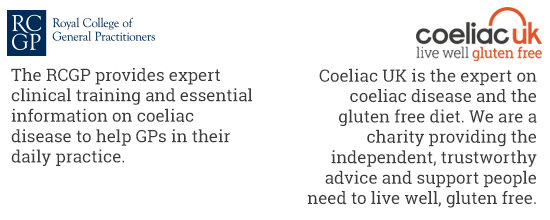The importance of screening patients struggling with unexplained infertility or miscarriage

Coeliac UK and the RCGP are both working to support GPs in the diagnosis of coeliac disease, a common condition that affects one in every 100 people.1
While the diagnosis of coeliac disease has improved over recent years, it remains low with only 30% of those with the condition benefiting from a diagnosis.2
Improving diagnosis rates in coeliac disease might mean looking under the surface in some unlikely places. For instance, undiagnosed coeliac disease has an association with subfertility, in men and women, and recurrent miscarriage.3
NICE recommends that coeliac disease is considered in patients with unexplained subfertility or recurrent miscarriage.3 This is one of several conditions linked to coeliac disease, others include Down’s syndrome and Turner syndrome.3
For other conditions the recommendations are stronger, and NICE recommends testing patients with type 1 diabetes or IBS, if they have not been tested before.3
Learn more about identifying, diagnosing and managing coeliac disease by completing the RCGP coeliac disease learning module here.
References
1. NHS Choices. Available from: http://www.nhs.uk/Conditions/Coeliac-disease/Pages/introduction.aspx; last accessed April 2016.
2. West J, et al. Am J Gastroenterol 2014;109:757-768.National Institute for Health and Care Excellence. Coeliac disease: recognition, assessment and management (NG20). 2015. London: National Institute for Health and Care Excellence.
3. National Institute for Health and Care Excellence. Coeliac disease: recognition, assessment and management (NG20). 2015. London: National Institute for Health and Care Excellence.
Sponsored by an educational grant from Thermo Fisher Scientific.
